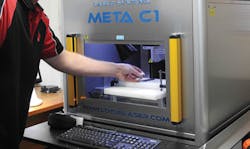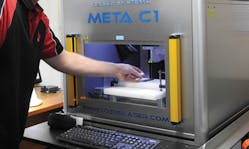TORRENSVILLE, SOUTH AUSTRALIA – Manufacturing companies in Australia are finding niches in the medical technologies sector as their traditional mining and automotive markets diminish. Lower production costs and more robust large-scale capabilities offshore are playing a major role in the exit of mining and automotive component manufacturers from Australia. However, industry and government support have helped some firms evolve their advanced manufacturing skills and enter the medical device market.
Medical device production in Australia has grown by 1.3% annually since 2012 and is now valued at AU$3 billion a year, according to IBISWorld. South Australia is emerging as a hub for the medical devices industry, and is home to the Tonsley Innovation Hub and the Adelaide BioMed City precinct, a $3 billion tripartite health hub comprising a major hospital, research centers, and educational institutions.
The Tonsley hub is located on the site of a former Mitsubishi car manufacturing plant, and major tenants include medical device manufacturers Micro-X, Siemens, and ZEN Energy. International optical and optoelectronics firm Zeiss is also about to move into a new $6 million premises at the hub.
The downturn in world commodity prices has forced South Australian company Plastico & Hackett Engineering to shift its focus from mineral analysis equipment development to components for orthopedic implants (FIGURE). The company, which offers laser engraving services, received a $47,500 grant from the South Australian Government last month to help it transition. It first dabbled in medical devices in 2014, but has now decided to make it a major focus following collaboration with Austofix (also in Adelaide), which has been developing innovative orthopedic trauma devices for more than 25 years, including a device that allows surgeons to accurately insert an implant inside a bone without the use of x-rays. Their Ezy-Aim Electronic Digital Targeting System and associated nails are used to repair fractures of the femur, tibia, and humerus bones.
Plastico & Hackett managing director David Schiller said 20 years' experience making mining components had it well placed to succeed in the medical field. "The decline of the mining industry in Australia has forced us to look at other things," he said. "China seems to be commanding a large chunk of the mining components manufacturing and we have seen our business move there recently, which is hard. There is a large push for South Australia to transform itself into a medical device hub and there is an opportunity for us to do well here."
Major car manufacturers in Australia, including Toyota, Mitsubishi, and Ford, are moving their assembly lines overseas because of the relatively small size of the Australian market and high production costs.
South Australian-based SMR Technologies (Lonsdale, South Australia) is an independent division of SMR Automotive Australia focused on the design, manufacture, and distribution of high-quality products for a broad range of industries. The car sensor manufacturer developed the world's first plastic automotive mirrors, earning it more than $160 million in exports. However, the exit of the automotive industry from Australia also has it looking to medical devices. The company is working on a number of noninvasive devices, including take-home tests for bladder cancer patients that use biosensors to test urine, with the goal of helping people avoid uncomfortable follow-up tests where tubes are inserted into the urethra to access the bladder.
In an industry-university collaboration in Adelaide, researchers from the University of South Australia and Flinders Medical Centre are preparing the device for a 1000-patient hospital trial. An SMR Technologies spokesman said the company was very interested in exploring more opportunities in the area of cancer research. "Cancer is a global issue and we hope that these sensors will play a key role in the fight against the deadly disease," he said. The spokesman said preliminary results suggested it was a superior method to common cancer detection methods such as cytology and endoscopy.
This uptake in manufacturing in Australia is also supported by the increase in clinical trials for medical technology, which has grown by about 8% per year, according to MTPConnect managing director Sue MacLeman.
This article was supplied by Caleb Radford, a journalist and content creator at The Lead South Australia.

